
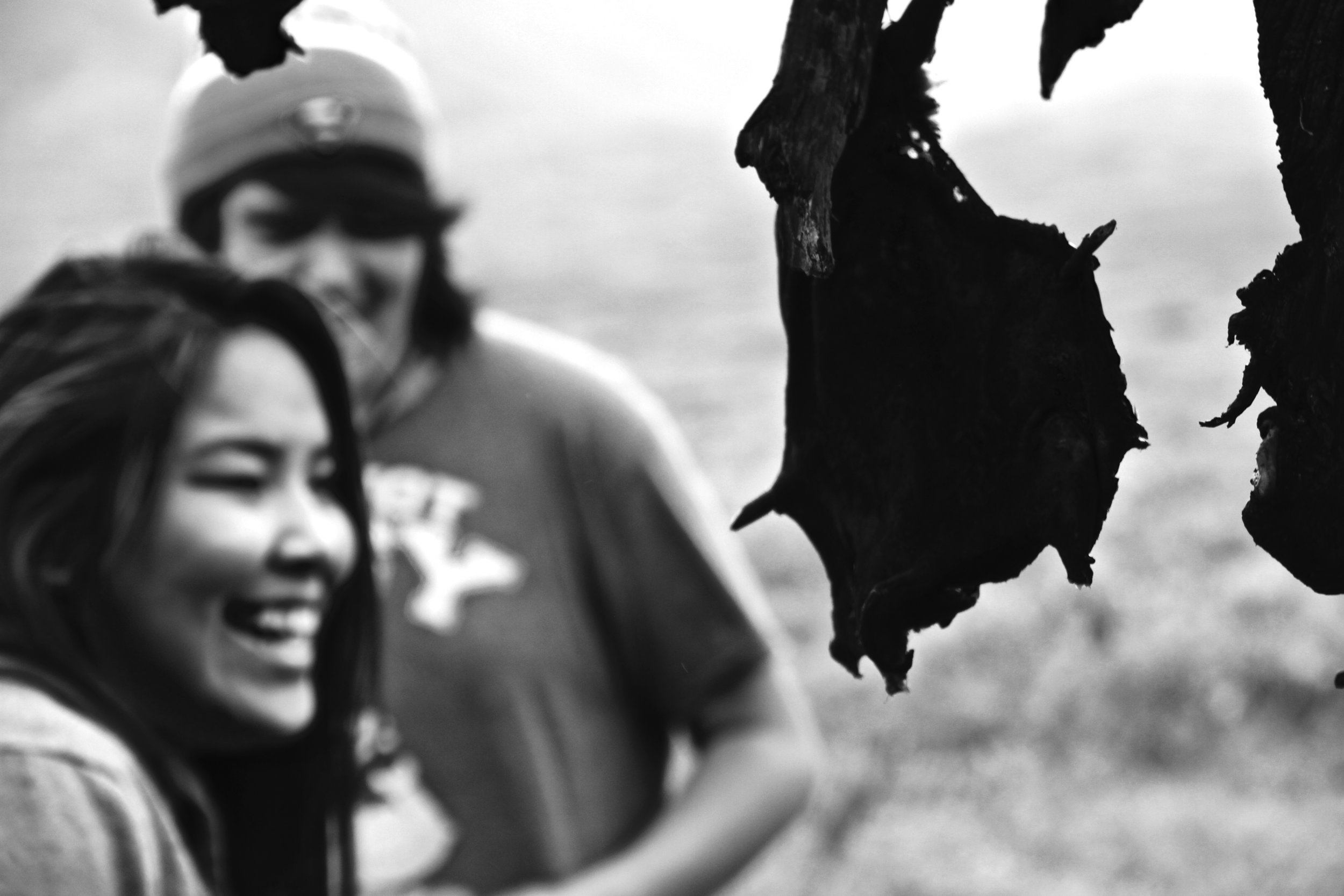


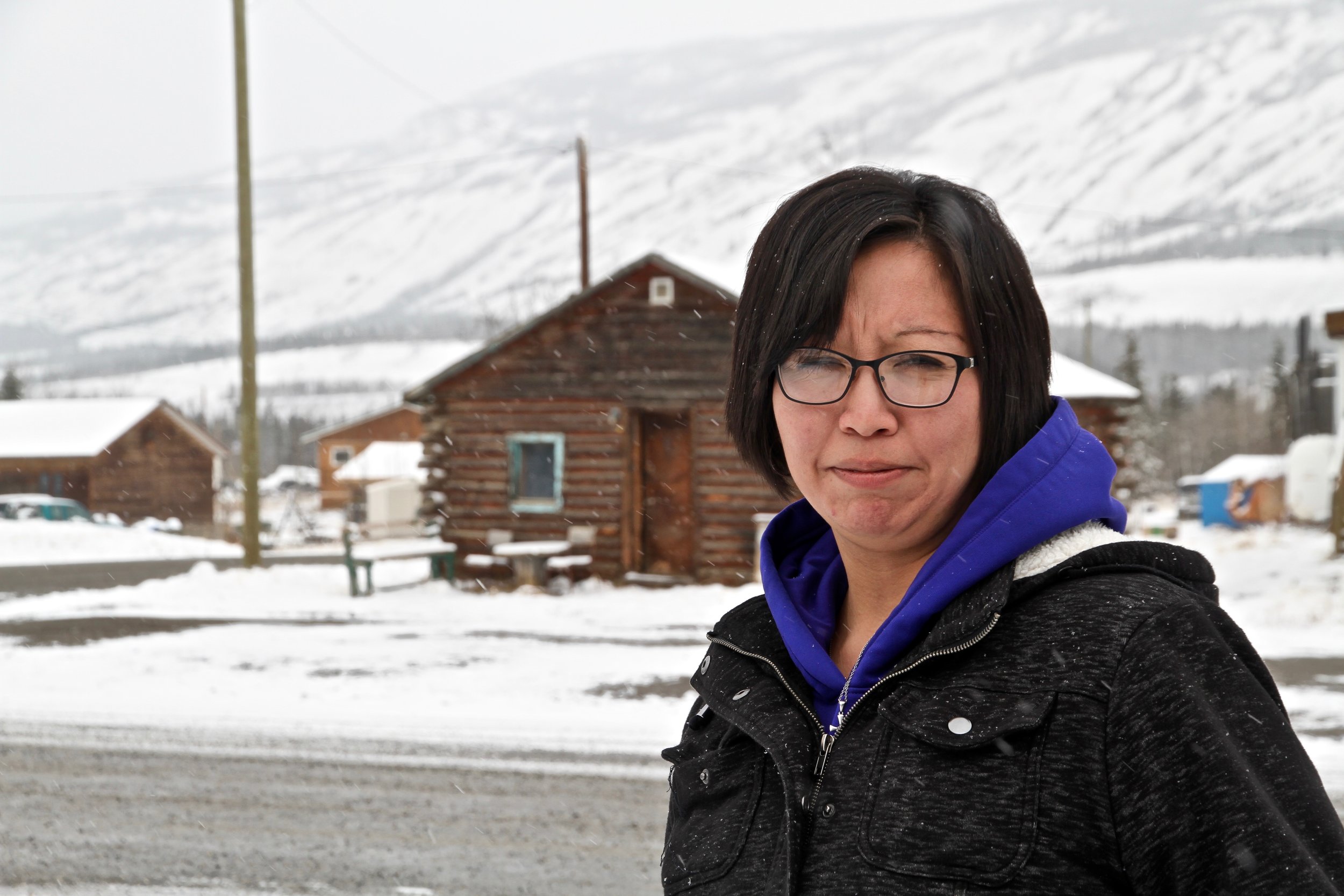




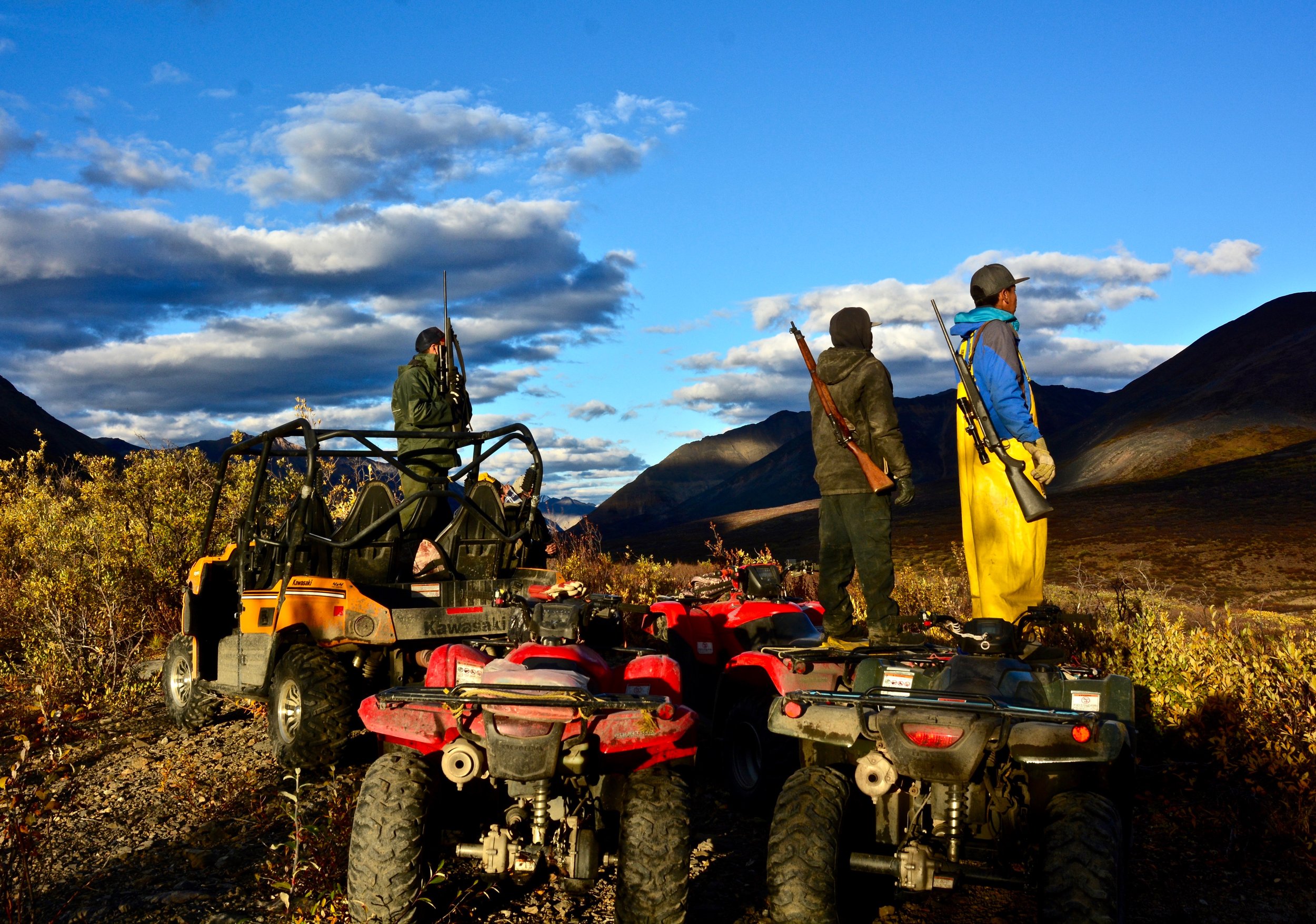

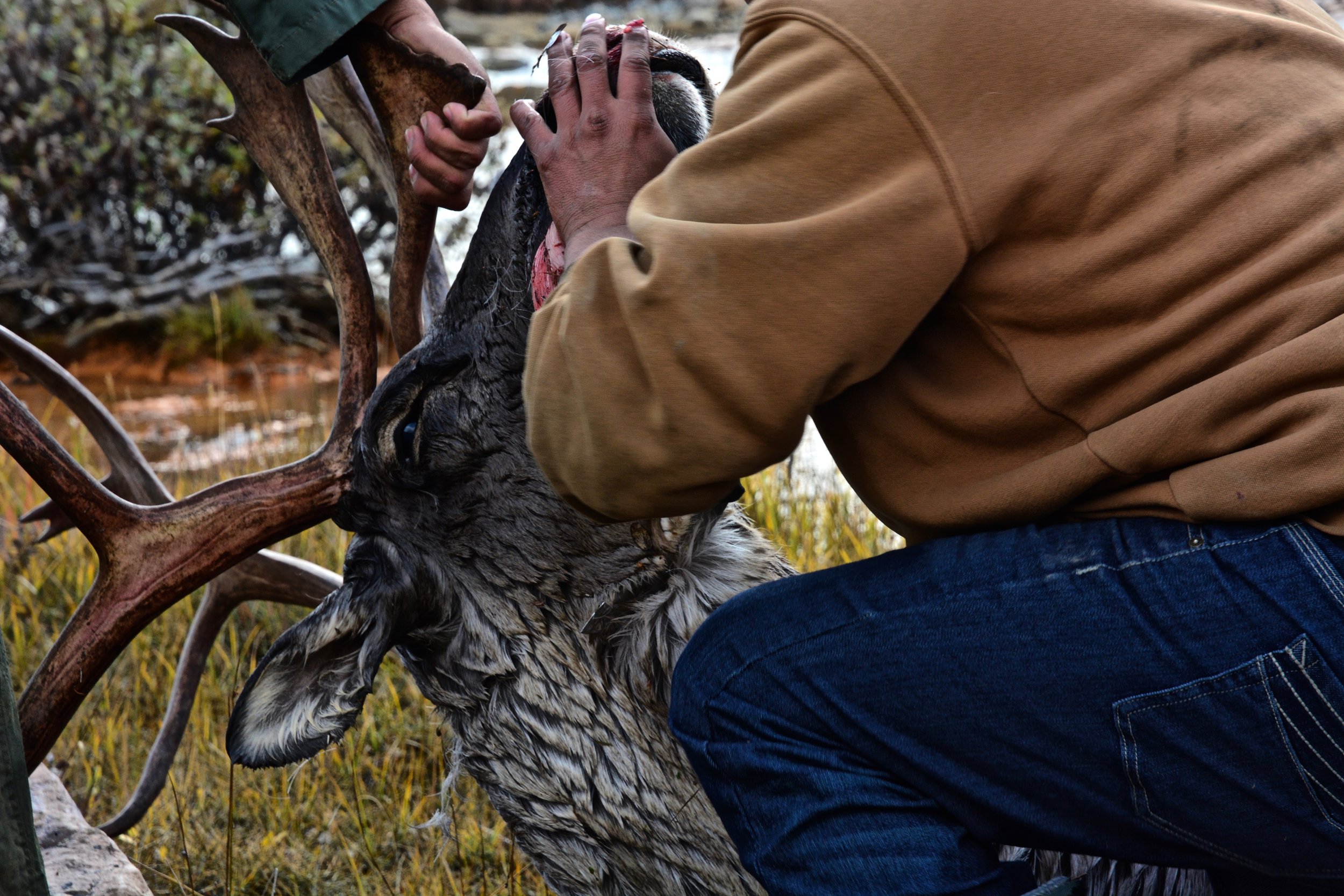
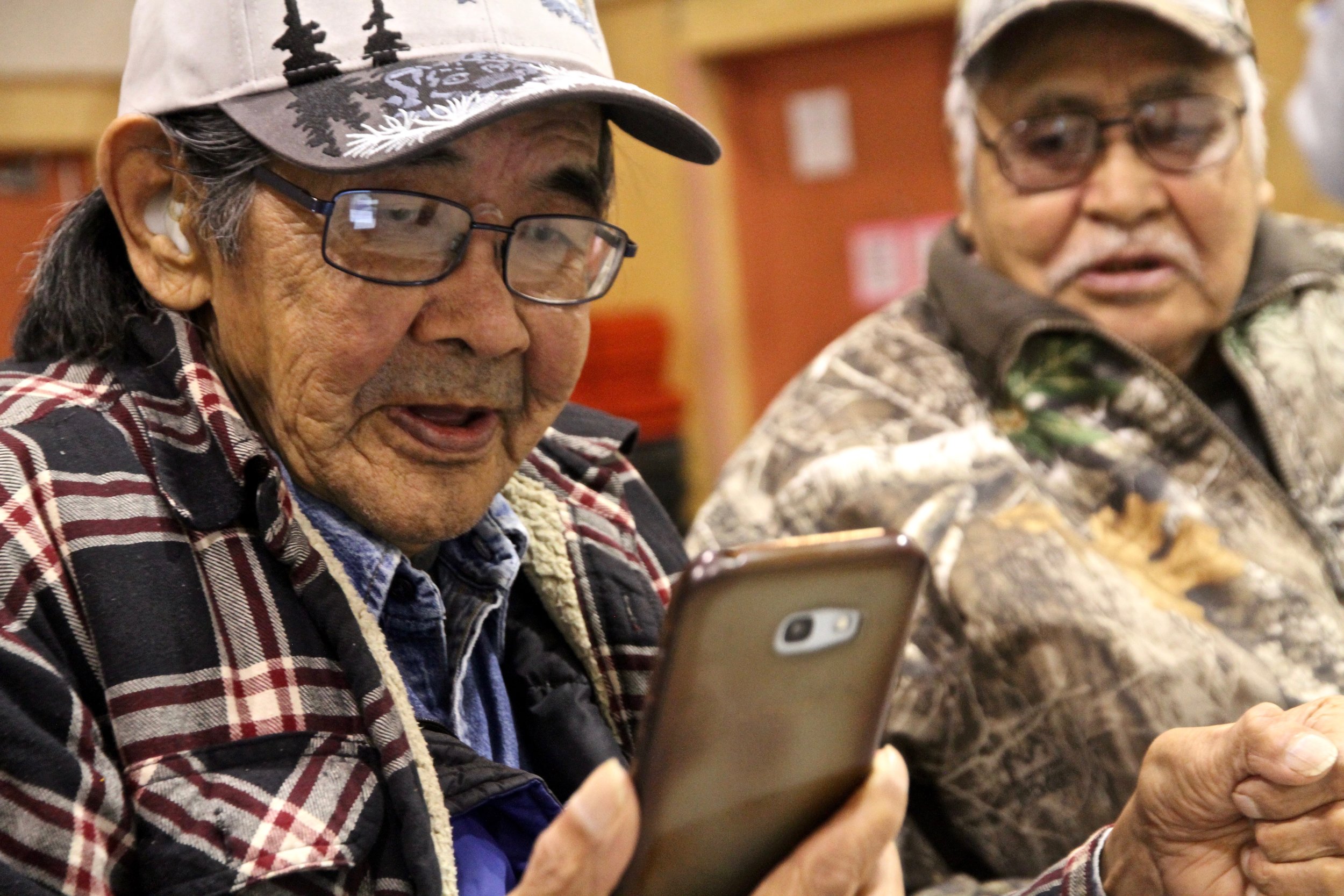
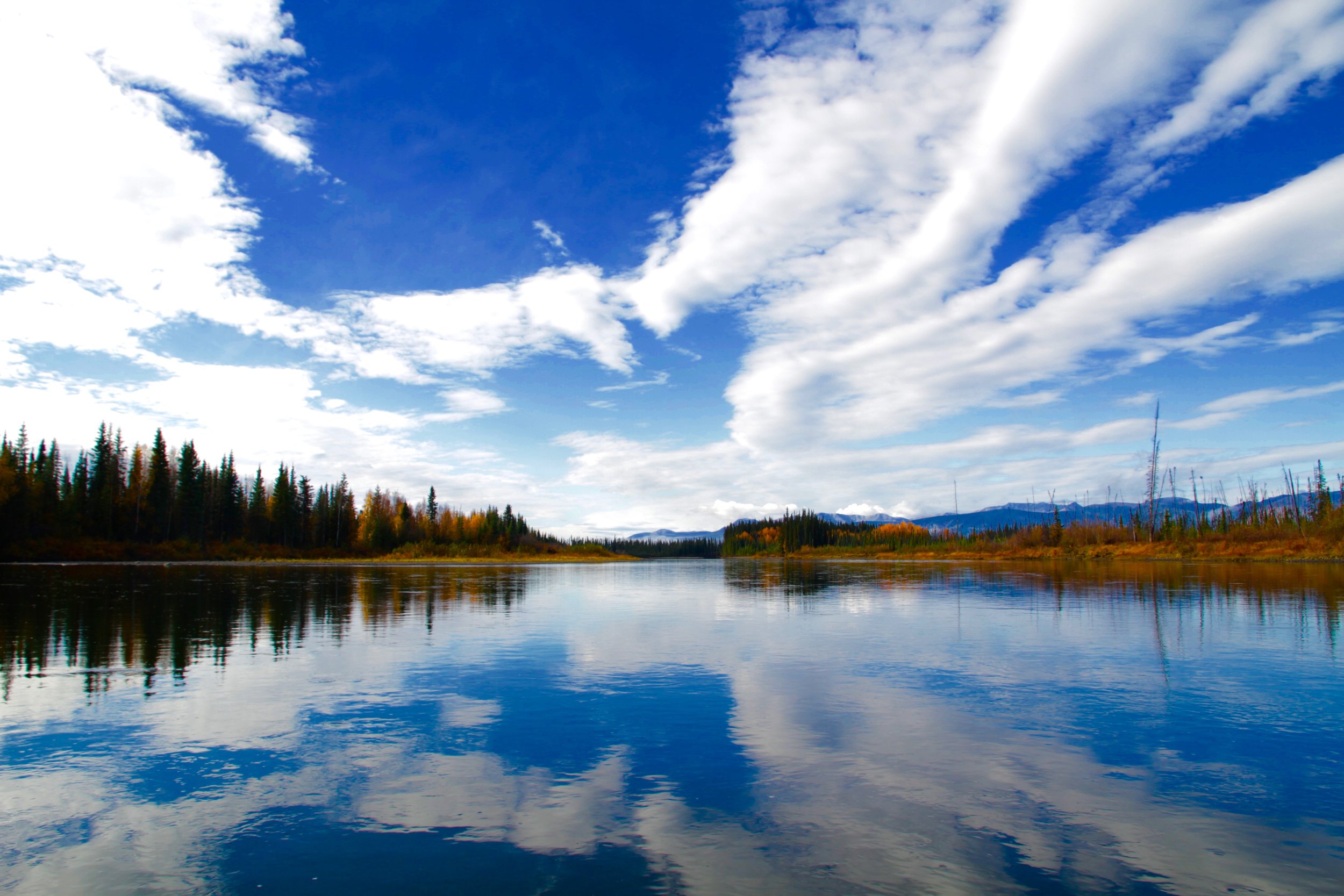
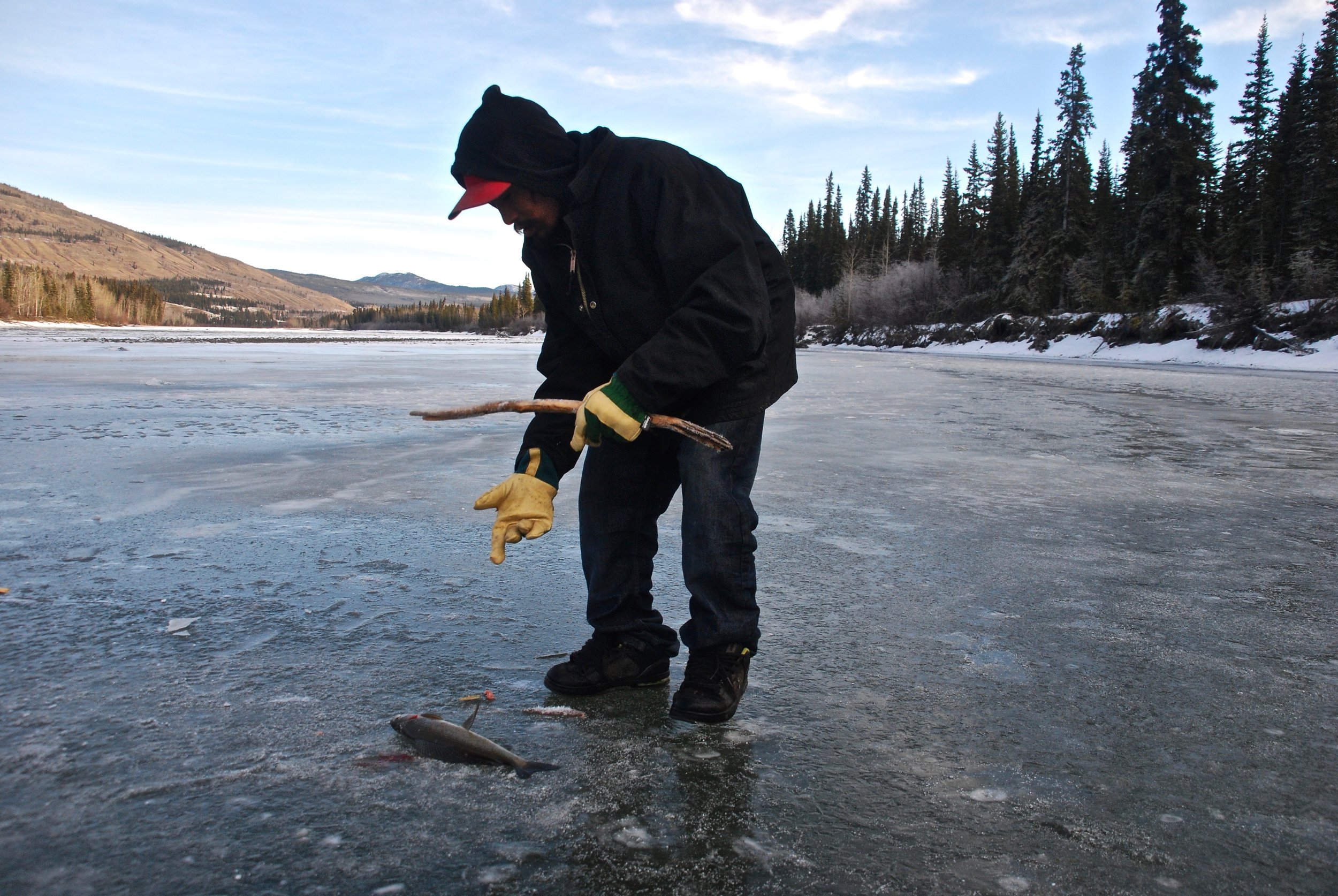

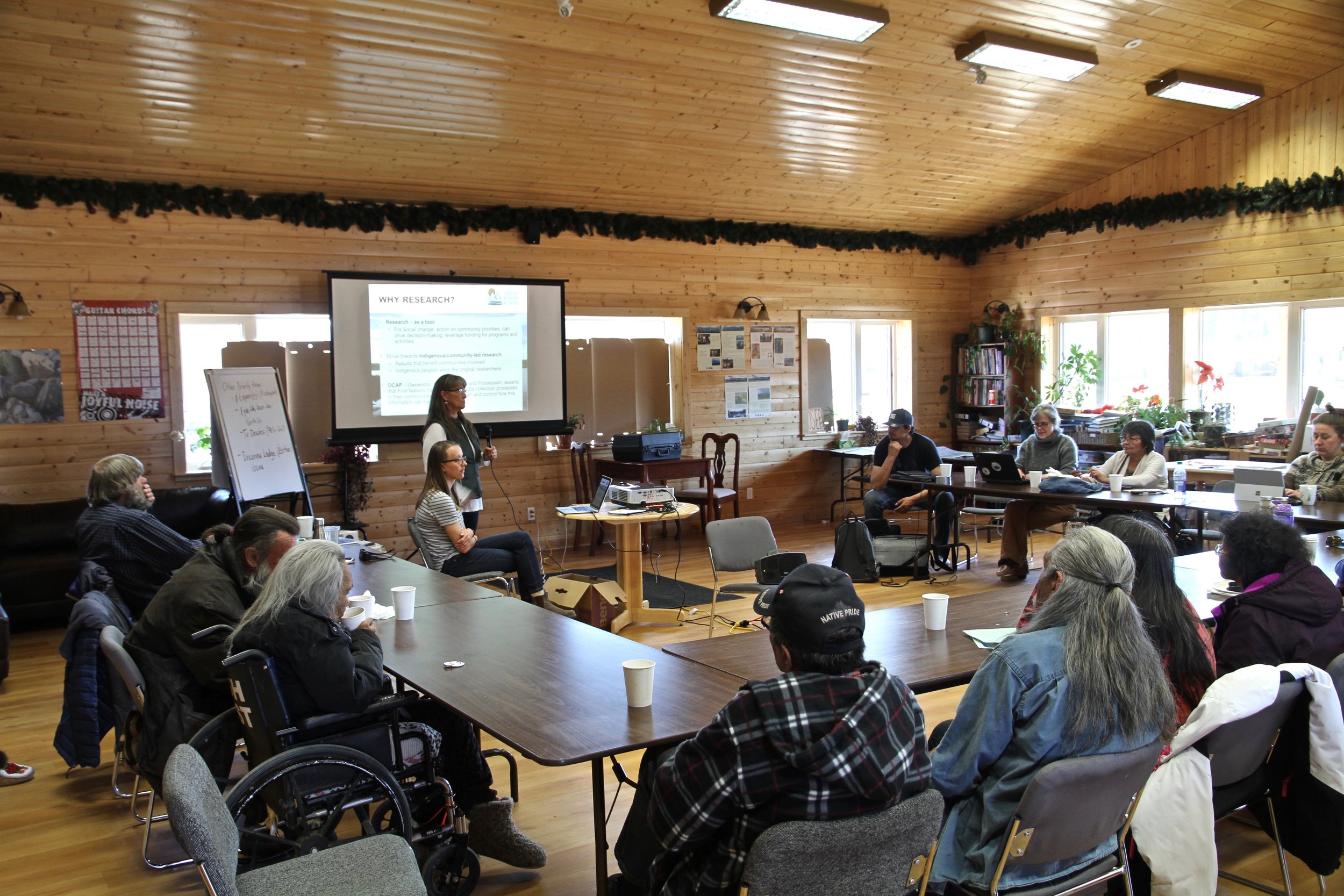

Caribou meat hangs in a smoke shack not too far from Ross River, Yukon. Ross River is planning on opening up a community freezer where every family is able to obtain traditional meat when needed. The rise in food costs makes it difficult for some families that can’t afford food from the store here in Ross River.

Maylene Andrew is pictured in front of traditional dry meat that hangs over the fire at Caribou Pass. The land offers so many resources that are vital for the Dene wellbeing and health. I remember when I was younger, me and the family would always travel up the North Canol. We would spend all summer, right into the fall, harvesting caribou and moose. The elders would say, the land is our store and we depend on it for our food.

Moose head sits in front of a canvas tent. Being on the land is so important for our wellbeing, and mental health. As a kid I remember how my grandparents always told me that ‘whenever you are going through a tough time, go out on the land’.

Cameron Jonny and Matthew Tuffs peak their heads out of the tent while trout is hanged on some willows in front. The federal government is supporting on the land programs for first nations youth across the north. On the land programs help train youth to be leaders in areas such as land management, monitoring and as stewardship guardians. It is our inherent duty as land stewards, our responsibility as First Nations, to carry the torch of ancestral knowledge for the next generation.

Portrait of Verna Nukon, councillor, Ross River Dena Council. Having greater number of women in politics will also encourage more girls to pursue all types of big dreams, as they’ll have role models to look up to such as Verna. Before European contact there was a balance between the roles of men and women. Women held positions of power in communities in various capacities; positions of leadership and responsibility all while caring and supporting others.

Dylan Loblaw opens the valve to the clean drinking water for Ross River. It is not the only source for clean drinking water; many community members get their water up the North & South Canol road as well. Some of the members don’t trust the town water due to the added chlorine to purify it.

The Ross River Dena Council (RRDC) has a strong interest in sustainable renewable energy, such as geothermal. RRDC partnered with the University of Alberta to help with the process and planning. A community meeting was held with the University to discuss planning and implementation. So far, the community is behind the proposed plan, looking at the benefits of geothermal, the potential for community greenhouses, home heating, and jobs that will be created. We are still a long way from seeing this vision as a reality, but we are going in the right direction.

Jean Claude, along with his pet, poses in front of Henry Dick’s sawmill. Henry Dick bought the sawmill a couple years ago; so far, he has built his own cabin and has helped many others that needed lumber.

The Yukon Territory is currently ranked number six in Canada for installing solar power systems, and scores high with incentives, electricity prices, and financing options. Ross River introduced solar energy to help with fuel costs with the local swimming pool. Solar energy was introduced two years ago with help from the Yukon Government.

Three young Dene on their ATVs look over the valley for Caribou in early fall. At the heart of Dene are ties to the land; the power to teach, to heal, to connect to history and provide a living. Canada’s Indigenous Guardians program is off to a tentative start, with the federal government last year announcing $25 million over five years for 40 pilot programs — a far cry from the requested $500 million in stable funding, which would support approximately 1,500 Guardians.

Northern communities are on the forefront of climate change, and permafrost is one of the major resulting issues they face. Infrastructure in Ross River is particularly vulnerable to the effects of thawing permafrost. Recently, a local newspaper headline read, “As school shifts in Yukon, company pitches ‘a giant air conditioner’ to freeze the ground during the summer.” With melting permafrost, the foundation of the school is shifting, leaving the community feeling uneasy about the safety of the school. But, what are we to do? Where are we going to teach the kids? Technology is usually installed as a last resort and often is not the answer.

Tyrel Olie, better known as cowboy in the community and beyond, carefully cuts the head of the caribou. It is our responsibility as Dene people to care for the meat, respect the powerful animal and not waste anything. It is important to teach the younger generation of how crucial it is to follow the Dene ways and traditions of hunting and caring for the meat.

In April of 2019 elders and youth were brought together to discuss the subject of climate change for the first time. This gathering allowed for timely reflection of how empowering it is to have both the youth and elders in the same room at the same time to talk about food sovereignty, active engagement and optimism for the future. The discussion was grounded in traditional knowledge, and ways of being in our oral tradition.

The headwaters of Ross River is a diverse living eco-system that has sustained my people since time immemorial. I could imagine a time when the moose boat was still being used for traveling. I could see my ancestors making their way to Tu Łidlini (where the waters meet) during the summers. It was a place for gathering after the long winter months, to visit and to play traditional games. Still today, we utilize the head waters for hunting and for our drinking water.

Cory with his freshly caught grayling on the banks of the Pelly River. Amos Dick was sure happy to see what he will be having for supper that day. As a kid, I would always help ethsie (grandpa) Amos with trapping. I always thought it was boring to do any of that stuff but now that I’m older I realize that Amos was teaching me without me even knowing it. Now, I’m grateful to help Amos. He is in his 90s, but he still likes to be independent and do things on his own. Every once in a while, he asks for help with little things, like feeding his dogs.

The elders are the pillars of Indigenous communities; they are the foundation of our culture and how we govern ourselves. They are the caretakers of the land and knowledge holders. Elders are often held in the highest regard and with great respect. If an elder imparts wisdom upon you, you must make an offering of tobacco or food to show gratitude and appreciation.

Communities come together to discuss the Trails of the Mountain Caribou Management Plan - a plan to ensure the sustainability of the Mountain Caribou in the shared territory of the Mackenzie Mountains. The Plan is a joint-working group between Ross River, Yukon, Tulita and Norman Wells, Northwest Territories and was formed at the beginning of 2014. In summer 2017, there was a week‐long workshop held at Dechenla Lodge to develop a joint, community‐based conservation plan for the area. Decline of the caribou is our main concern, but we are also currently discussing implementation of an Indigenous Protected and Conserved Area (IPCA) within the Dechenla Area.
